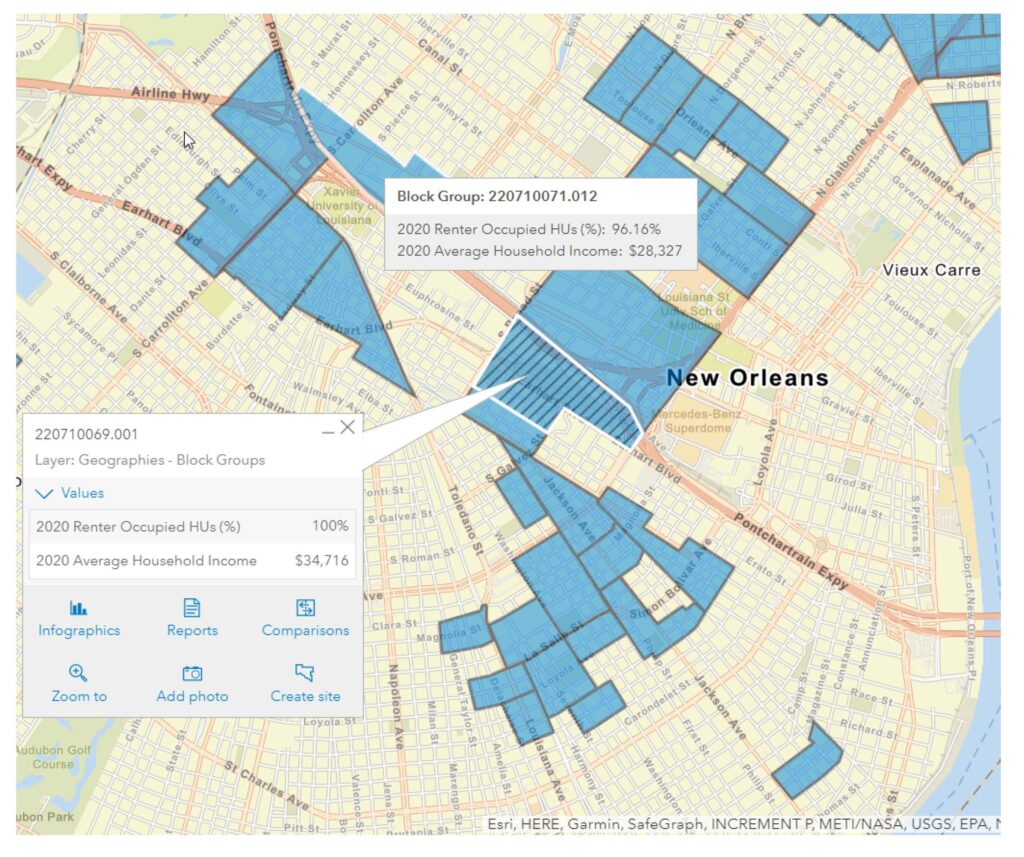
Most successful retailers looking to start a business have an uncanny instinct for a good location because nearby residents will make their business flourish. But there is a new wave of retailers that back up their gut instinct with the latest technology and utilize a scientific approach with hard data to determine the perfect location for a new business. This article explores how they do it.

Let’s look at how the owner of a simple business like a laundromat determined what location would be best for them. The business owner first researched who a typical customer is for a laundromat: someone who rents rather than owns a home and has a minimum wage income. We utilized the CCIM Site To Do Business to map all the neighborhoods in New Orleans and identify both criteria: over 60% of the households rent rather than own, and have an income between $20,000 and $35,000. The map shows how the search identified the large areas shown in blue and narrowed the areas down into Block Groups, which are usually between 600 and 3,000 people. Block Groups are submarkets of Census Tracts which are submarkets of Zip Codes, and are used to pinpoint a more precise retail location.

We can also use the data to compare a short list of locations to determine current population density and population growth in the future. Great locations pull from nearby residents with a propensity to buy your goods; however, having a dense population can make up for a lack of demand. Population growth should be a key factor in site selection, and the data is readily available.
ESRI is a research firm that collects data on consumer spending which can show not only spending in various categories but can also drill down into specific items that may be triggers for a business. Old school site selection was as simple as locating near a McDonald's because they spent the money to research the best locations. So just be near a McDonald's. Today, a small business can get the same insightful data from ESRI demographics and make decisions just like big corporations.

The map easily shows the annual coin-op spending per household by block groups with the darker circles spending the most per household. Also depicted is the block group total spending with the larger circles budgeting over $120,000,000 annually.
The best retail locations are not always the wealthiest areas. Dollar General opened 18,000 stores growing to 30 billion in revenues with locations in modest income areas. Get to know your customers and what they need, then develop your own criteria for who your best customer is. Look for areas that have a dense population that meet that criteria but also are growing. There is a lot of data available which can reduce your risk in selecting the perfect location for your business, and much of it can be obtained for free. Just ask a commercial real estate broker with the CCIM designation and access to the ESRI data to help.
For more information on starting a business, read our blog on "What To Know Before Signing a Lease".